
The Pristine Paradise of Togean Islands
Nestled in the heart of Indonesia, the Togean Islands offer an idyllic escape for those seeking tranquility and natural beauty. This hidden gem boasts crystal-clear waters, pristine beaches, and lush tropical forests, making it an ideal destination for nature lovers and adventure seekers alike. The Togean Islands are a haven for underwater enthusiasts. The archipelago is renowned for its vibrant coral reefs and diverse marine life, providing exceptional snorkeling and diving experiences. From swimming with stingless jellyfish in Mariona Lake to exploring the captivating underwater caves, the islands present a unique underwater world waiting to be discovered. Beyond the water, the Togean Islands are rich in cultural and ecological treasures. Visitors can explore traditional fishing villages, learn about the local Bugis and Bajo communities, and hike through the verdant forests. The islands' remoteness ensures that they remain unspoiled, offering a rare opportunity to experience an untouched piece of paradise.
Local tips in Togean Islands
- Plan your visit during the dry season from April to October for the best weather and sea conditions.
- Bring cash as there are no ATMs on the islands, and credit cards are rarely accepted.
- Consider staying in a homestay to experience the local culture and support the community.
- Pack reef-safe sunscreen to protect the coral reefs while snorkeling or diving.
- Arrange your transportation in advance, as reaching the islands can be complex and requires careful planning.
The Pristine Paradise of Togean Islands
Nestled in the heart of Indonesia, the Togean Islands offer an idyllic escape for those seeking tranquility and natural beauty. This hidden gem boasts crystal-clear waters, pristine beaches, and lush tropical forests, making it an ideal destination for nature lovers and adventure seekers alike. The Togean Islands are a haven for underwater enthusiasts. The archipelago is renowned for its vibrant coral reefs and diverse marine life, providing exceptional snorkeling and diving experiences. From swimming with stingless jellyfish in Mariona Lake to exploring the captivating underwater caves, the islands present a unique underwater world waiting to be discovered. Beyond the water, the Togean Islands are rich in cultural and ecological treasures. Visitors can explore traditional fishing villages, learn about the local Bugis and Bajo communities, and hike through the verdant forests. The islands' remoteness ensures that they remain unspoiled, offering a rare opportunity to experience an untouched piece of paradise.
When is the best time to go to Togean Islands?
Iconic landmarks you can’t miss
Reconnect - Private Island Resort & Dive Center | Buka Buka Island | Togean Islands
Discover the tranquil beauty of Reconnect - Private Island Resort & Dive Center on BukaBuka Island, a paradise for relaxation and diving adventures in Central Sulawesi.
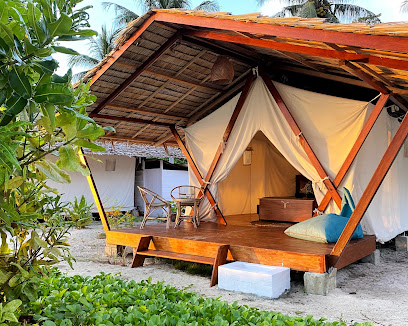
Kepulauan Togean National Park
Explore the stunning landscapes and rich biodiversity of Kepulauan Togean National Park in Central Sulawesi, a tropical paradise for adventure seekers and nature lovers.
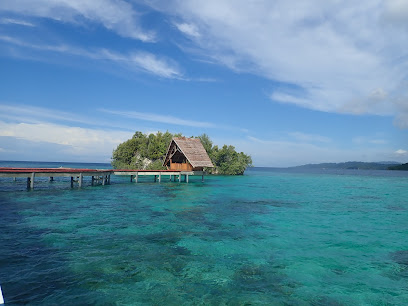
Kadidiri Paradise Resort & Dive Centre
Experience the ultimate tropical getaway at Kadidiri Paradise Resort & Dive Centre, where relaxation meets adventure in the heart of Indonesia.

Sanctum Una Una | Eco Dive Resort | Togean Island
Explore the stunning marine biodiversity and tranquil beauty of Togean Island at Sanctum Una Una Eco Dive Resort.
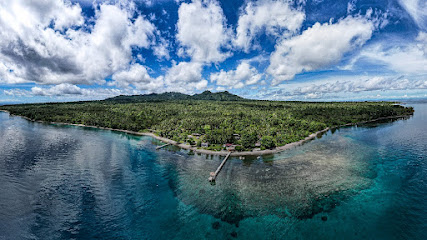
Bahia Tomini Eco Resort
Discover the serene beauty of Bahia Tomini Eco Resort in Central Sulawesi, a perfect blend of luxury, nature, and sustainable tourism.
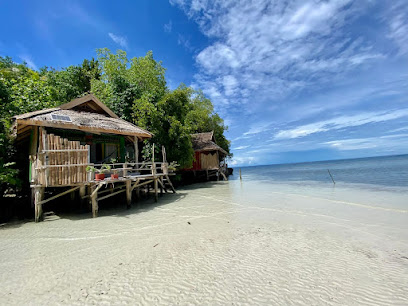
Togean island
Discover Togean Island, Indonesia's hidden paradise, where stunning beaches, vibrant coral reefs, and rich local culture create an unforgettable escape.
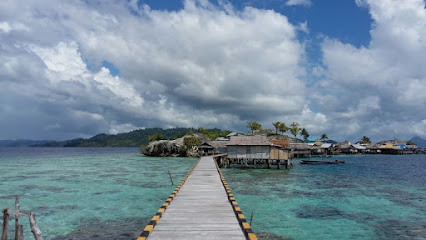
Harmony Bay Resort & Dive Center
Discover the stunning beauty of the Togean Islands at Harmony Bay Resort & Dive Center, your perfect tropical getaway for adventure and relaxation.

Pristine Paradise Dive Resort
Experience the ultimate getaway at Pristine Paradise Dive Resort, where adventure meets relaxation amidst the stunning beauty of Central Sulawesi's Togean Islands.
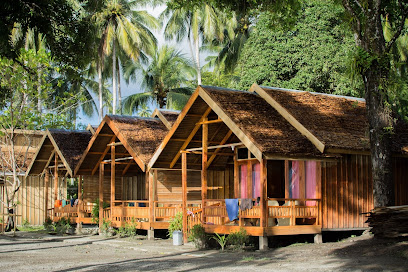
Araya Dive Resort
Experience the ultimate escape at Araya Dive Resort in Sulawesi, where adventure meets relaxation amidst stunning natural beauty.

Black Marlin Dive Resort
Experience unparalleled tranquility and adventure at Black Marlin Dive Resort, a premier destination for diving and relaxation in the breathtaking Togean Islands.
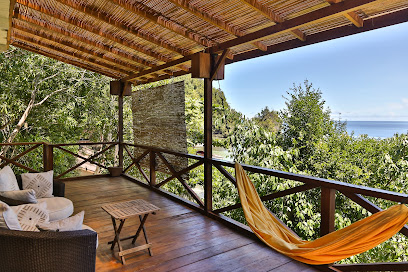
Bolilanga Island Resort
Discover the serene beauty of Bolilanga Island Resort, where relaxation meets adventure in the stunning Togean Islands of Central Sulawesi.
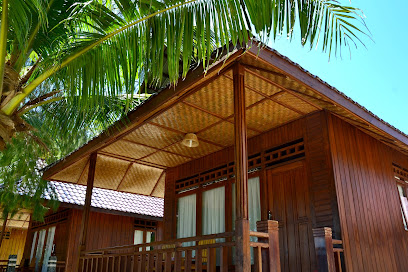
Pulau Papan Togean
Experience the unparalleled beauty and tranquility of Pulau Papan Togean, a serene paradise in Central Sulawesi, Indonesia.
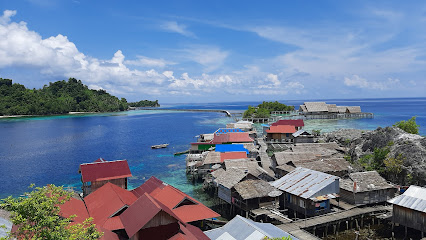
Fadhila Cottages Togean Dive Resort
Discover tranquility and adventure at Fadhila Cottages Togean Dive Resort, where stunning nature meets exceptional diving experiences in Central Sulawesi.
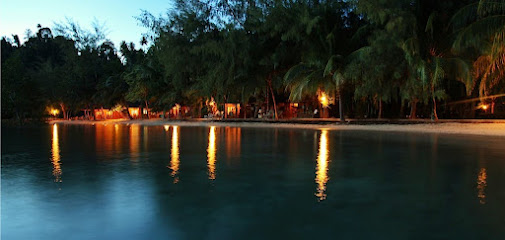
The Cliff Togean Beach Resort
Discover the breathtaking beauty of The Cliff Togean Beach Resort, an idyllic escape in the heart of Central Sulawesi's Togean Islands.

Sandy Bay Resort
Experience the unspoiled beauty of Sandy Bay Resort, where pristine beaches meet vibrant coral reefs on Malenge Island, Central Sulawesi.
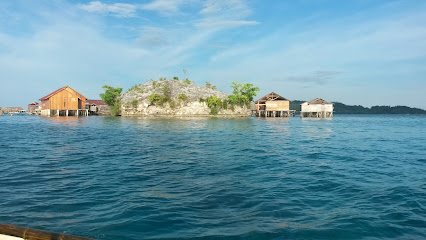
Unmissable attractions to see
Permandian Malotong
Explore the serene landscapes and vibrant ecosystems of Permandian Malotong, a lush park in Central Sulawesi, ideal for relaxation and adventure.
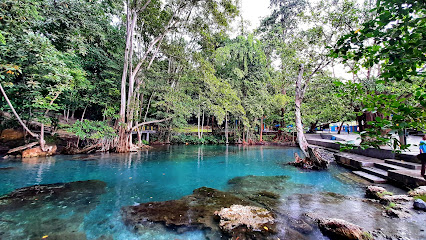
Kepulauan Togean National Park
Explore the pristine beauty of Kepulauan Togean National Park, a serene paradise with stunning beaches, vibrant marine life, and rich biodiversity.
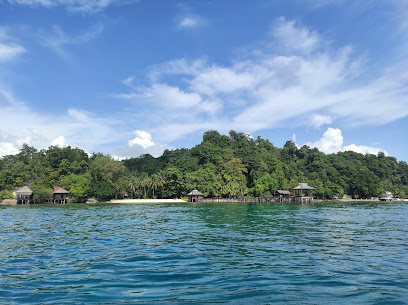
Piala Waterfall
Experience the breathtaking beauty of Piala Waterfall in Central Sulawesi, Indonesia – a hidden gem for nature lovers and adventure seekers.
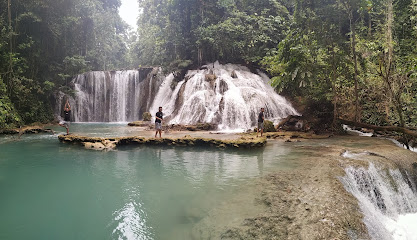
Sanctum Una Una | Eco Dive Resort | Togean Island
Discover the ultimate eco-friendly dive resort on Togean Island, where adventure meets tranquility in a breathtaking natural setting.
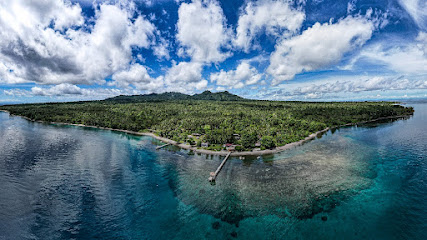
Togean island
Explore Togean Island, a hidden gem in Indonesia with stunning beaches, vibrant marine life, and rich cultural experiences for every traveler.
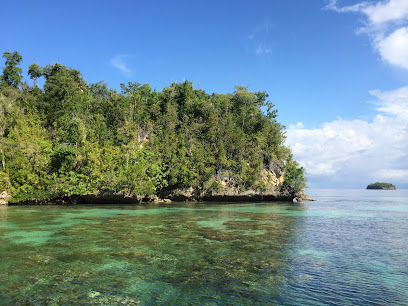
Bolilanga Island Resort
Experience the serene beauty and vibrant marine life at Bolilanga Island Resort, a hidden paradise in the Togean Islands of Indonesia.
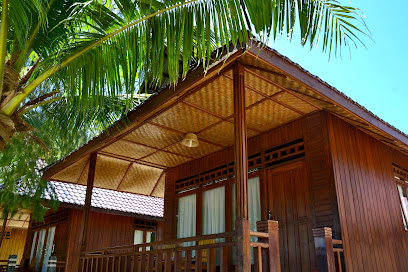
Jelly Fish Lake
Explore the enchanting Jellyfish Lake in Togean Islands, where you can swim with non-stinging jellyfish amidst stunning natural beauty.
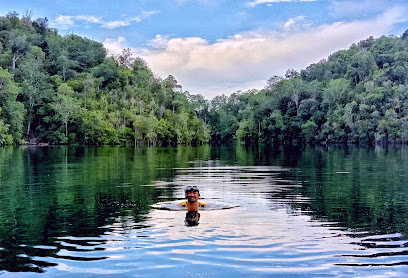
Sandy Bay Resort
Discover the stunning beauty of Sandy Bay Resort on Malenge Island, where crystal-clear waters and pristine beaches await your adventure.
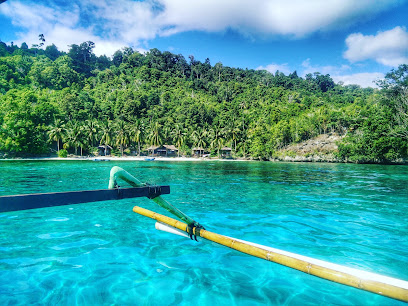
Wisata Teluk Damai Beach Ampana
Experience the tranquil beauty of Wisata Teluk Damai Beach in Ampana, a perfect escape for relaxation and adventure in Sulawesi.
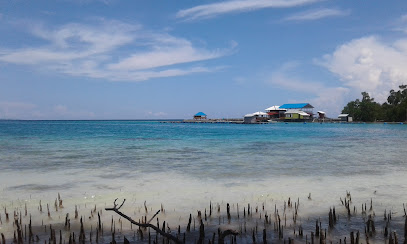
Pantai Tanjung Toima
Experience the unspoiled beauty of Pantai Tanjung Toima, a serene beach paradise offering relaxation, adventure, and stunning landscapes in Central Sulawesi.
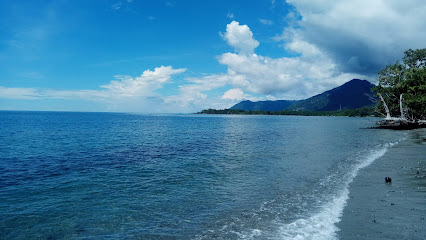
Air Terjun Kamumu
Explore the natural beauty of Air Terjun Kamumu, a captivating waterfall in Central Sulawesi, perfect for relaxation, adventure, and breathtaking views.
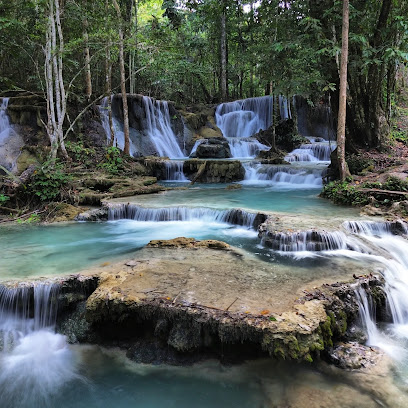
Pantai Pongian
Experience the tranquility and natural beauty of Pantai Pongian, a hidden gem in Central Sulawesi perfect for relaxation and adventure.
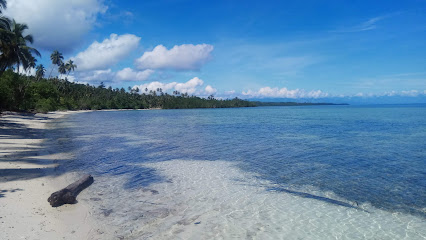
Karina Beach
Experience the untouched beauty of Karina Beach in Central Sulawesi, where tranquility meets breathtaking scenery and vibrant marine life.
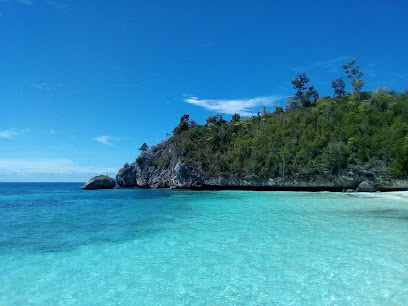
Pasir Putih
Experience the pristine beauty of Pasir Putih, Central Sulawesi – a tropical paradise perfect for relaxation, adventure, and cultural exploration.
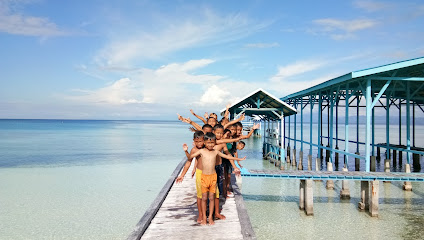
Wisata Tanjung api
Explore the tranquil beauty of Wisata Tanjung Api, a serene coastal paradise in Central Sulawesi offering stunning landscapes and rich cultural experiences.
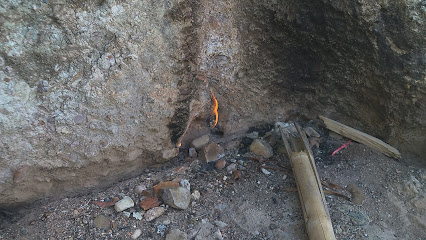
Essential places to dine
Reconnect - Private Island Resort & Dive Center | Buka Buka Island | Togean Islands
Discover tranquility and adventure at Reconnect - Private Island Resort & Dive Center on BukaBuka Island in Togean Islands.
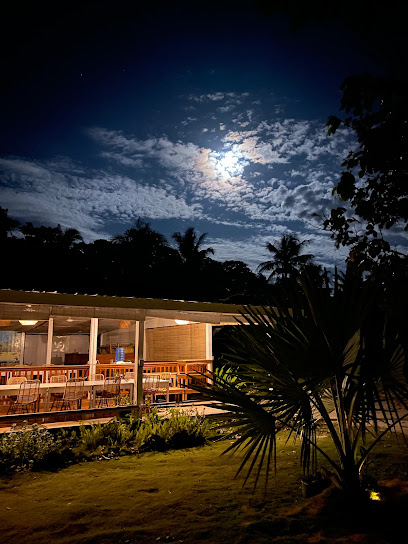
Warung Pangkep Dg. Iwan
Discover authentic South Sulawesi seafood at Warung Pangkep Dg. Iwan – where every bite tells a story of local culture.
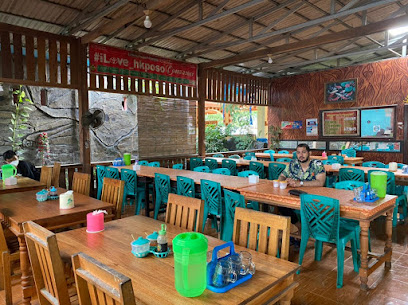
Anugrah Seafood Restaurant
Discover authentic seafood delights at Anugrah Seafood Restaurant in Central Sulawesi—where fresh flavors meet cultural heritage.
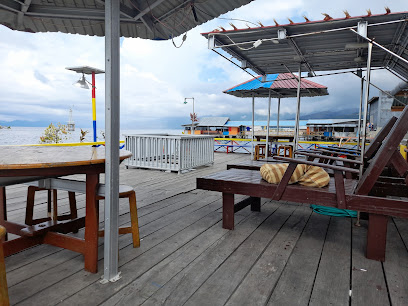
Rumah Makan Lestari, Sabo
Experience authentic Sulawesi flavors at Rumah Makan Lestari, Sabo – the ultimate destination for grilled fish lovers!
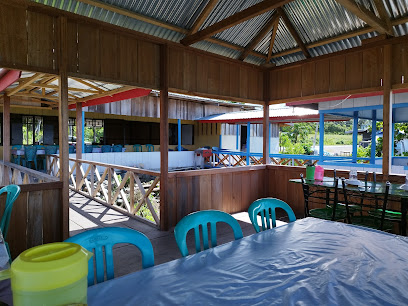
D'Langit Resto n Cafe
Discover authentic Indonesian cuisine amidst stunning views at D'Langit Resto n Cafe in Central Sulawesi.
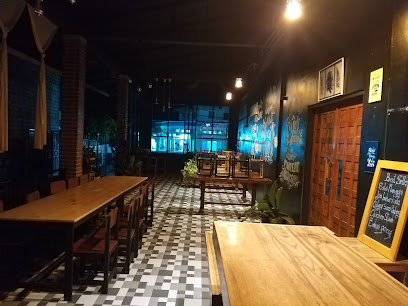
Warung nasi kuning tante NINA
Experience authentic Indonesian flavors at Warung Nasi Kuning Tante NINA, where every dish tells a story of tradition and taste.
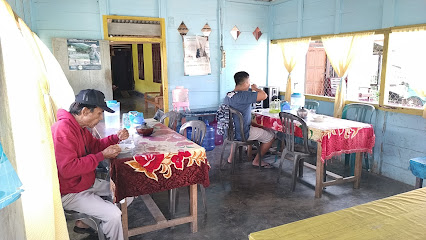
Rumah Makan Pangkep
Discover authentic South Sulawesi flavors at Rumah Makan Pangkep – where traditional cuisine meets welcoming hospitality.
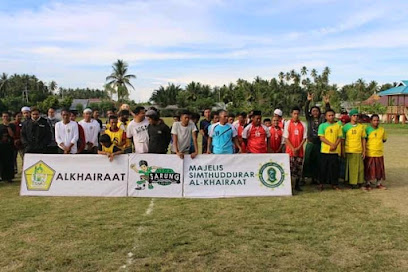
Warung Jawa Timur
Discover the essence of Javanese flavors at Warung Jawa Timur – a delightful dining experience in Central Sulawesi.
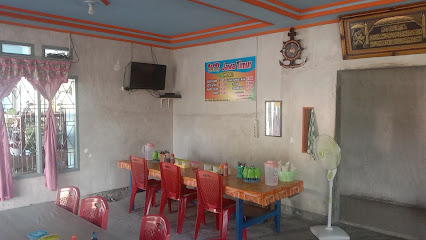
Warung Pangkep Konro
Discover authentic South Sulawesi flavors at Warung Pangkep Konro—a culinary haven in Tojo Una-Una Regency.
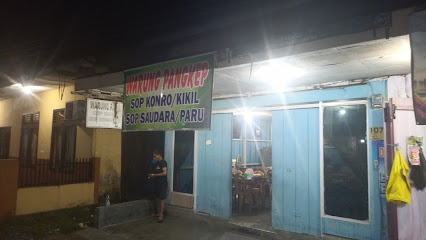
Warung Makan Bu Dian
Discover authentic Indonesian cuisine at Warung Makan Bu Dian in Tojo Una-Una; where every dish tells a story.
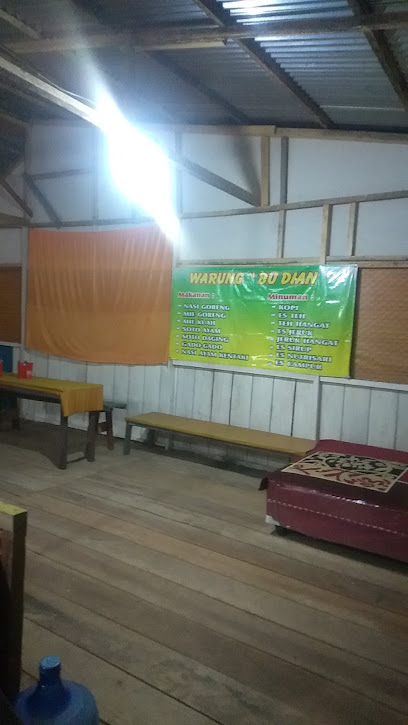
Lina Cafe
Discover the authentic taste of Indonesia at Lina Cafe in Central Sulawesi - where every dish tells a story.
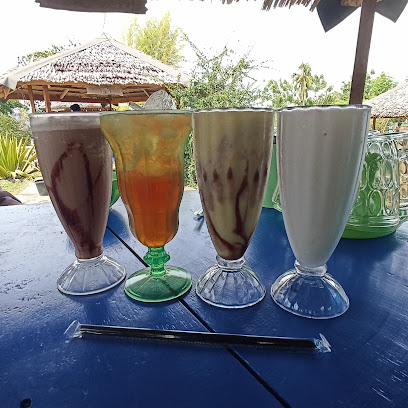
Warung Nasi Kuning indo nifa
Experience authentic Indonesian cuisine at Warung Nasi Kuning Indo Nifa - where local flavors come alive in every bite.
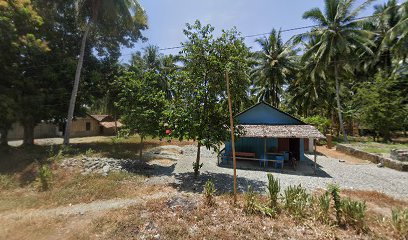
RUMAH MAKAN SAMBAL BAKAR VIRAL AMPANA
Experience authentic Indonesian cuisine at Rumah Makan Sambal Bakar Viral Ampana, where delicious sambals and warm hospitality await you.

Warung Cahaya Asia
Experience authentic Indonesian flavors at Warung Cahaya Asia, a charming nasi restaurant in Sulawesi serving delicious rice-based dishes.
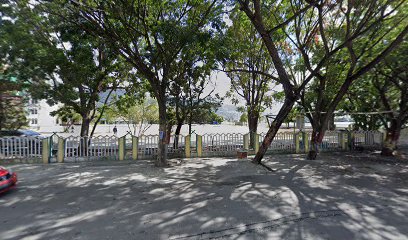
Kedai Cari Aja
Experience authentic Indonesian cuisine at Kedai Cari Aja in Bunta - where every dish tells a story.
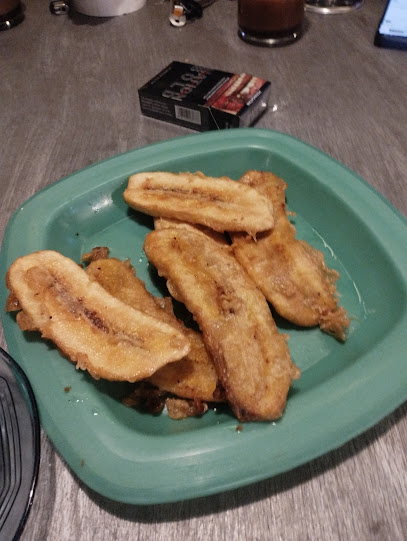
Markets, malls and hidden boutiques
Kepulauan Togean National Park
Experience the untouched beauty and rich biodiversity of Kepulauan Togean National Park, a paradise for adventure seekers and nature lovers.
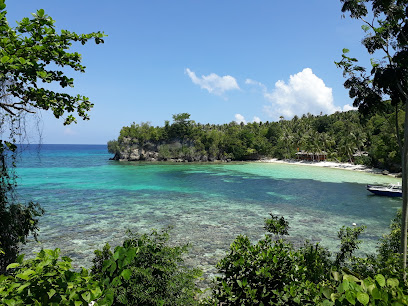
Sanctum Una Una | Eco Dive Resort | Togean Island
Experience the vibrant underwater world at Sanctum Una Una, the eco-friendly dive resort in Togean Islands, Central Sulawesi.
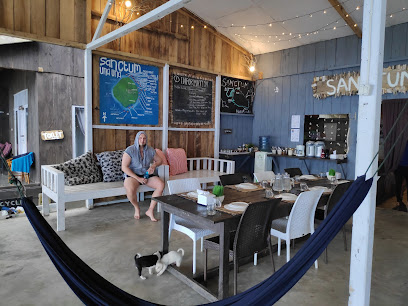
Togean island
Explore Togean Island: A Tropical Paradise of Crystal Waters and Rich Biodiversity in Indonesia's Tojo Una-Una Regency.
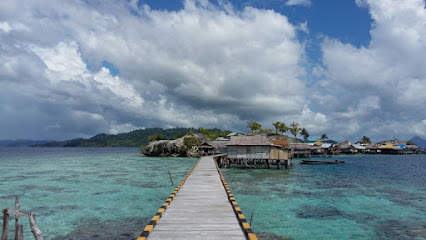
Harmony Bay Resort & Dive Center
Experience ultimate relaxation and thrilling underwater adventures at Harmony Bay Resort & Dive Center in Central Sulawesi.

Black Marlin Dive Resort
Experience the enchanting beauty of Black Marlin Dive Resort, where adventure meets relaxation in the heart of Central Sulawesi's stunning marine paradise.
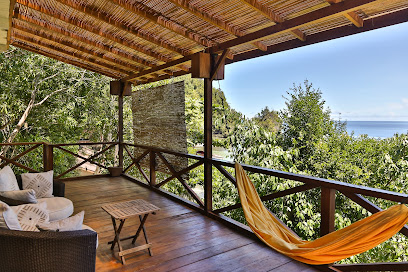
Bolilanga Island Resort
Discover the tranquil paradise of Bolilanga Island Resort, where stunning beaches and vibrant marine life await your visit in the Togean Islands.
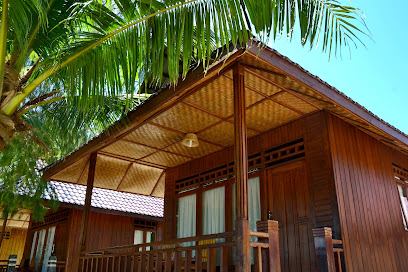
Pulau Papan Togean
Explore the untouched beauty of Pulau Papan Togean, a tropical paradise with stunning beaches and vibrant marine life, perfect for relaxation and adventure.
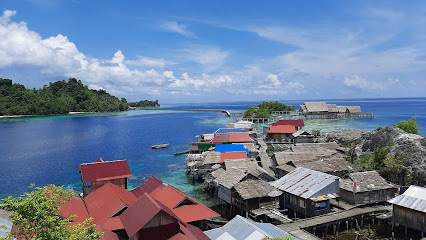
Fadhila Cottages Togean Dive Resort
Experience the stunning beauty and adventure of Togean Islands at Fadhila Cottages, your perfect resort hotel for diving and relaxation.
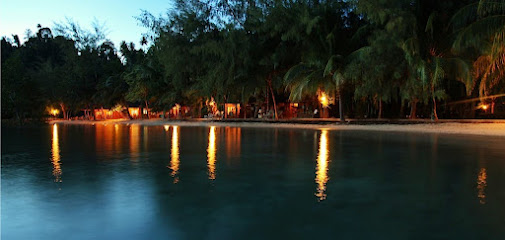
Pondok Lestari Kadidiri
Discover the tranquil charm of Pondok Lestari Kadidiri, a serene lodging escape nestled in the breathtaking beauty of Togean Islands, Sulawesi.

Pusungi Jaya
Discover the vibrant flavors and friendly atmosphere at Pusungi Jaya, a delightful kiosk in Central Sulawesi offering local snacks and refreshments.
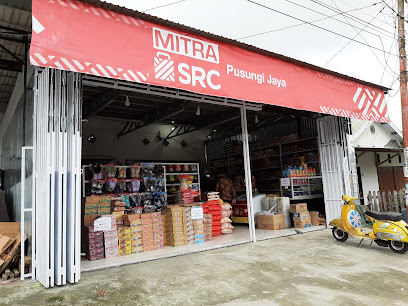
Ale Beach Angkayo
Experience the tranquil beauty of Ale Beach Angkayo, a serene coastal retreat in Central Sulawesi, perfect for relaxation and exploration.

Karina Beach
Experience the tranquil beauty of Karina Beach in Central Sulawesi, where pristine shores meet vibrant marine life for an unforgettable getaway.
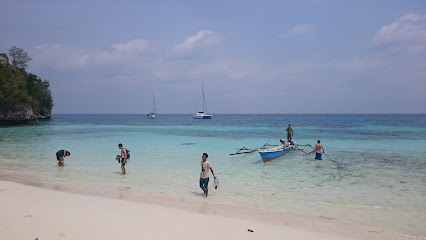
Resti Farma Apotek
Discover Resti Farma Apotek in Wakai, Central Sulawesi - your reliable pharmacy for health and wellness needs while traveling.
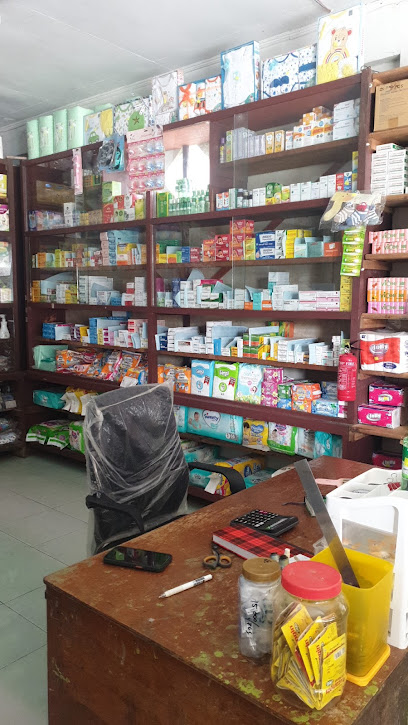
Ernha Shop 2
Experience the vibrant fashion scene at Ernha Shop 2 in Bunta, where traditional meets modern in a unique clothing store.
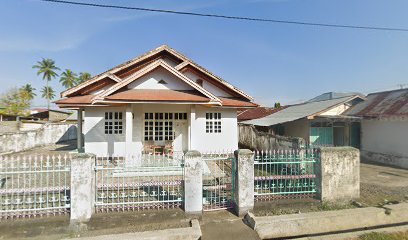
Anthy shop
Explore Anthy Shop in Banggai Regency for exquisite clothing that blends local culture with contemporary style, perfect for every traveler.
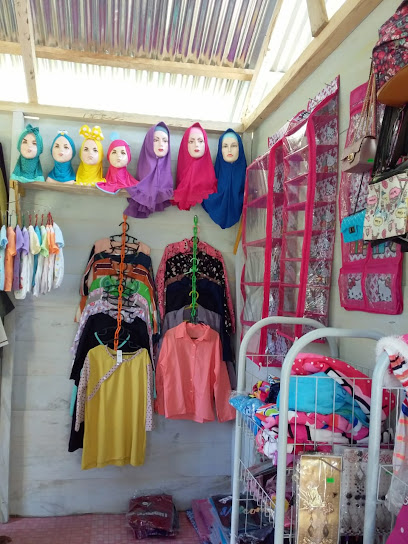
Essential bars & hidden hideouts
Togean island
Togean Island: A Tropical Paradise of Vibrant Marine Life and Breathtaking Landscapes in Indonesia's Tojo Una-Una Regency.
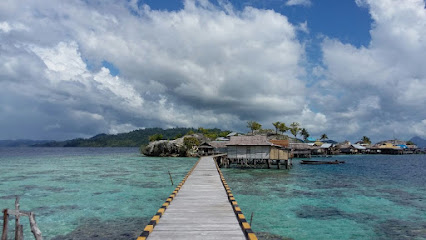
Harmony Bay Resort & Dive Center
Discover tropical bliss at Harmony Bay Resort & Dive Center in Togean Islands, where relaxation meets adventure in pristine surroundings.

Black Marlin Dive Resort
Discover the breathtaking underwater wonders at Black Marlin Dive Resort, your ultimate diving getaway in the Togean Islands.
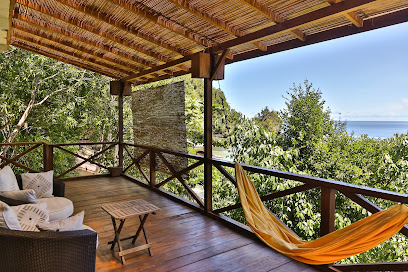
Fadhila Cottages Togean Dive Resort
Discover the tranquil beauty of Fadhila Cottages Togean Dive Resort, where relaxation meets adventure in the heart of Central Sulawesi's stunning landscapes.
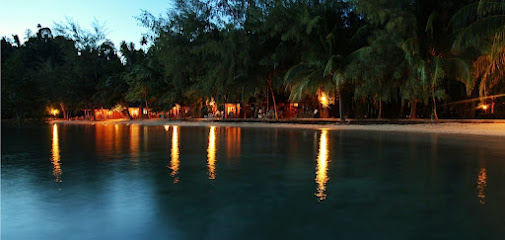
Gobo By Asembilan
Enjoy live music and a vibrant nightlife at Gobo By Asembilan in Ampana, Central Sulawesi - a must-visit for every traveler.
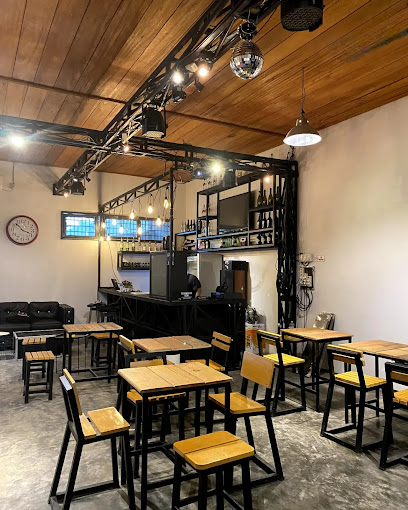
Mineral Beer & Steak House
Experience the lively atmosphere of Mineral Beer & Steak House, where mouthwatering steaks and refreshing beers await in Luwuk, Central Sulawesi.
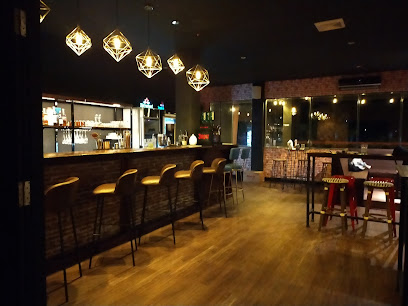
D'Mystic Coffee
Experience the vibrant flavors of Central Sulawesi at D'Mystic Coffee, the perfect spot for relaxation and local culture.
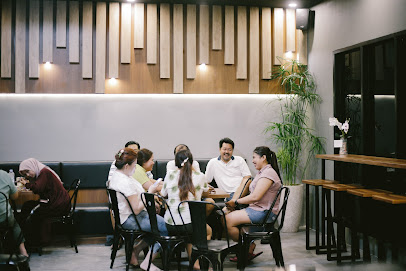
Karaoke Queen Celebes
Discover the vibrant karaoke scene at Karaoke Queen Celebes, where music, fun, and unforgettable memories await in the heart of Central Sulawesi.
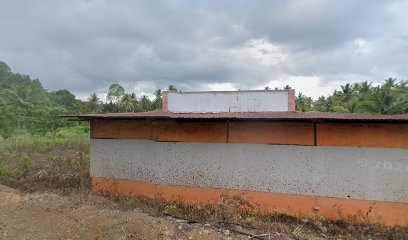
Uentanaga Bawah,kompleks Badola
Experience the vibrant nightlife at Uentanaga Bawah Bar in Central Sulawesi, where friendly faces and unique drinks await every traveler.
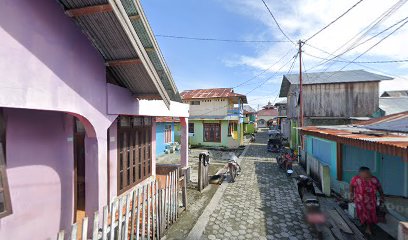
bar
Experience the vibrant nightlife and local flavors at Marowo's bar, a charming spot in Central Sulawesi, perfect for relaxation and socializing.
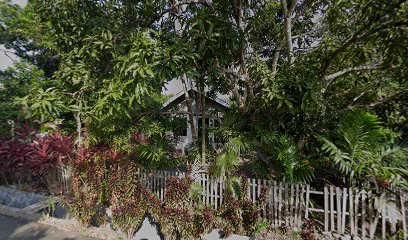
Yow Manggo Luwuk
Experience the vibrant cocktail culture at Yow Manggo Luwuk, where tropical flavors meet sophisticated mixology in the heart of Central Sulawesi.
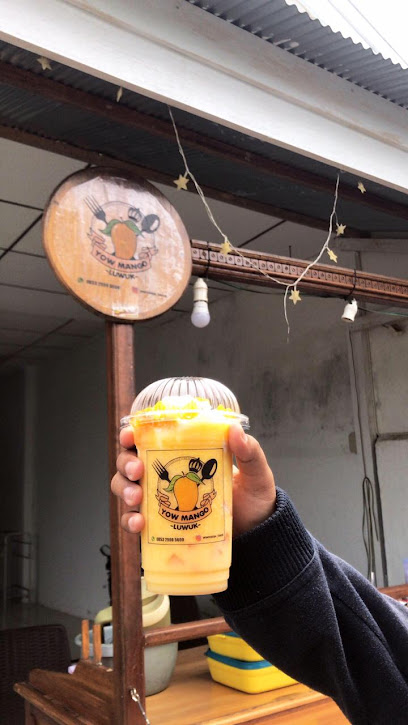
Le Katupat Cafe
Experience the culinary charm of Central Sulawesi at Le Katupat Cafe, where local flavors meet a cozy atmosphere.
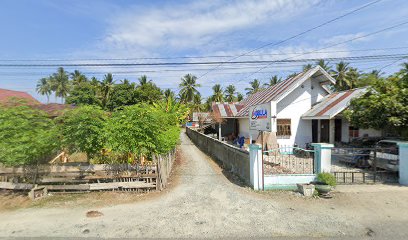
Alex
Experience the vibrant nightlife at Alex bar in Central Sulawesi, where local brews and cocktails meet culture in a lively atmosphere.
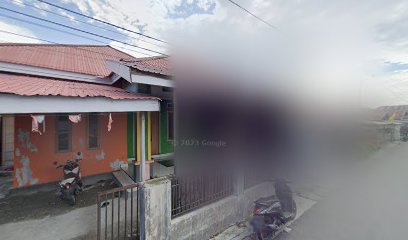
Hendry kahala
Experience the lively nightlife at Hendry Kahala, a vibrant bar in Gorontalo offering delightful drinks and a rich cultural atmosphere.

Local Phrases about Togean Islands
-
- HelloHalo
[ha-loh] - GoodbyeSelamat tinggal
[suh-lah-maht ting-gahl] - YesIya
[ee-yah] - NoTidak
[tee-dahk] - Please/You're welcomeTolong
[toh-lohng] - Thank youTerima kasih
[tuh-ree-mah kah-see] - Excuse me/SorryMaaf
[mah-ahf] - How are you?Apa kabar?
[ah-pah kah-bar] - Fine. And you?Baik. Dan kamu?
[bah-eek dahn kah-moo] - Do you speak English?Bisa bicara bahasa Inggris?
[bee-sah bee-chah-rah bah-hah-sah ing-griss] - I don't understandSaya tidak mengerti
[sah-yah tee-dahk muhng-ehr-tee]
- HelloHalo
-
- I'd like to see the menu, pleaseSaya ingin melihat menu, tolong
[sah-yah een-geen muh-lee-haht meh-noo toh-lohng] - I don't eat meatSaya tidak makan daging
[sah-yah tee-dahk mah-kahn dah-eeng] - Cheers!Selamat minum!
[suh-lah-maht mee-noom] - I would like to pay, pleaseSaya ingin membayar, tolong
[sah-yah een-geen muhm-bah-yahr toh-lohng]
- I'd like to see the menu, pleaseSaya ingin melihat menu, tolong
-
- Help!Tolong!
[toh-lohng] - Go away!Pergi!
[pehr-gee] - Call the Police!Panggil polisi!
[pahng-geel poh-lee-see] - Call a doctor!Panggil dokter!
[pahng-geel dohk-tehr] - I'm lostSaya tersesat
[sah-yah tuhr-suh-saht] - I'm illSaya sakit
[sah-yah sah-keet]
- Help!Tolong!
-
- I'd like to buy...Saya ingin membeli...
[sah-yah een-geen muhm-buh-lee] - I'm just lookingSaya hanya melihat-lihat
[sah-yah hahn-yah muh-lee-haht-lee-haht] - How much is it?Berapa harganya?
[buh-rah-pah hahr-gahn-yah] - That's too expensiveItu terlalu mahal
[ee-too tuhr-lah-loo mah-hahl] - Can you lower the price?Bisa kurangi harganya?
[bee-sah koo-rahn-gee hahr-gahn-yah]
- I'd like to buy...Saya ingin membeli...
-
- What time is it?Jam berapa sekarang?
[jahm buh-rah-pah suh-kah-rahn] - It's one o'clockJam satu
[jahm sah-too] - Half past (10)Setengah (10)
[suh-tuhng-ah (sepuluh)] - MorningPagi
[pah-gee] - AfternoonSore
[soh-reh] - EveningMalam
[mah-lahm] - YesterdayKemarin
[keh-mah-reen] - TodayHari ini
[hah-ree ee-nee] - TomorrowBesok
[beh-sohk] - 1Satu
[sah-too] - 2Dua
[doo-ah] - 3Tiga
[tee-gah] - 4Empat
[uhm-paht] - 5Lima
[lee-mah] - 6Enam
[uh-nahm] - 7Tujuh
[too-joo] - 8Delapan
[deh-lah-pahn] - 9Sembilan
[suhm-bee-lahn] - 10Sepuluh
[suh-poo-loo]
- What time is it?Jam berapa sekarang?
-
- Where's a/the...?Dimana...
[dee-mah-nah] - What's the address?Berapa alamatnya?
[buh-rah-pah ah-lah-mah-nyah] - Can you show me (on the map)?Bisa tunjukkan ke saya (pada peta)?
[bee-sah toon-jook-kahn keh sah-yah (pah-dah peh-tah)] - When's the next (bus)?Kapan bus berikutnya?
[kah-pahn boos buh-ree-koot-nyah] - A ticket (to ....)Selembar tiket (ke ....)
[suh-lahm-bahr tee-keht (keh ....)]
- Where's a/the...?Dimana...
History of Togean Islands
-
The Togean Islands have been home to indigenous peoples for thousands of years. The Bajau people, also known as sea gypsies, are among the earliest known inhabitants. They are renowned for their seafaring skills and unique way of life, living in stilt houses over the water and relying heavily on the ocean for their sustenance.
-
During the colonial era, the Togean Islands came under the influence of various colonial powers. The Dutch, who dominated much of Indonesia, had a significant impact on the region. The islands served as a strategic point for trade routes and military purposes. Evidence of Dutch colonial architecture and artifacts can still be found on some of the islands.
-
The Togean Islands played a role during World War II, particularly in the Pacific Theater. Japanese forces occupied the islands, using them as a strategic base. Remnants of this period, such as bunkers and other wartime relics, can still be explored, providing a tangible connection to this tumultuous time in history.
-
After Indonesia gained independence in 1945, the Togean Islands began to develop more independently. The region saw an increase in local governance and infrastructure development. Efforts were made to improve the quality of life for the islanders while preserving their cultural heritage and natural environment.
-
In 2004, the Indonesian government established the Togean Islands National Park to protect the region's rich biodiversity and unique marine ecosystems. The park covers both land and sea, offering protection to numerous endemic species and coral reefs. This initiative has also promoted eco-tourism, bringing attention to the islands' natural beauty and cultural significance.
-
The Togean Islands are a melting pot of cultures, with influences from the Bajau, Bugis, and other ethnic groups. Traditional practices, such as boat building, fishing techniques, and ceremonies, are still observed. The islands are also known for their vibrant festivals, where music, dance, and traditional costumes play a central role in celebrating the local culture.
Togean Islands Essentials
-
The Togean Islands are located in the Gulf of Tomini, Central Sulawesi, Indonesia. The nearest major city is Gorontalo, which has an airport (Jalaluddin Airport) with flights from Jakarta and other Indonesian cities. From Gorontalo, you can take a ferry to Wakai, the main entry point to the Togean Islands. Alternatively, you can fly to Palu or Luwuk and then take a combination of land and sea transport to reach the islands.
-
Once on the Togean Islands, the primary mode of transportation is by boat. Local boats, often referred to as 'public boats,' connect the various islands. For more flexibility, you can hire private boats. On land, transportation options are limited, but some islands have motorbikes for rent. Walking is also a viable option for exploring the smaller islands.
-
The official currency in Indonesia is the Indonesian Rupiah (IDR). It's advisable to carry sufficient cash as ATMs are scarce on the islands, and many places do not accept credit cards. The nearest ATMs are in Gorontalo or Ampana, so plan accordingly and withdraw enough cash before reaching the islands.
-
The Togean Islands are generally safe for tourists. However, it's advisable to take standard precautions. Avoid walking alone at night on deserted beaches or paths. Keep your belongings secure, particularly when traveling by boat. There are no specific high-crime areas, but always stay vigilant and aware of your surroundings.
-
In case of emergency, the nearest medical facilities are limited and basic. For serious medical issues, you may need to be transported to Gorontalo or another major city. It's highly recommended to have travel insurance that covers medical evacuation. For minor health issues, some islands have small clinics or pharmacies.
-
Fashion: Do wear light, breathable clothing suitable for tropical climates. Avoid overly revealing outfits, especially when visiting villages. Religion: Do respect local customs and traditions. Dress modestly when visiting religious sites. Public Transport: Do be polite and patient when using public boats. Don't overcrowd the boats. Greetings: Do greet locals with a smile and a nod. A handshake is also appropriate. Eating & Drinking: Do try the local cuisine, which often features fresh seafood. Don't waste food, as it is considered disrespectful.
-
To experience the Togean Islands like a local, spend time in the villages and interact with the local communities. Participate in traditional fishing or cooking activities if invited. Visit the Bajo villages, home to the sea nomads, to learn about their unique way of life. Snorkeling and diving are must-do activities, with many pristine coral reefs and diverse marine life.
-
Accommodation options on the Togean Islands range from basic beach bungalows to more comfortable eco-resorts. Most accommodations are family-run and offer full-board packages, including meals. It's recommended to book in advance, especially during peak tourist seasons.
-
Internet and mobile phone coverage can be limited on the Togean Islands. Some resorts offer Wi-Fi, but it's often slow and unreliable. It's a good idea to inform family and friends about limited communication options before your trip.
Trending Landmarks in Togean Islands
-
Reconnect - Private Island Resort & Dive Center | Buka Buka Island | Togean Islands
-
Kepulauan Togean National Park
-
Kadidiri Paradise Resort & Dive Centre
-
Sanctum Una Una | Eco Dive Resort | Togean Island
-
Bahia Tomini Eco Resort
-
Togean island
-
Harmony Bay Resort & Dive Center
-
Pristine Paradise Dive Resort
-
Araya Dive Resort
-
Black Marlin Dive Resort
-
Bolilanga Island Resort
-
Pulau Papan Togean
-
Fadhila Cottages Togean Dive Resort
-
The Cliff Togean Beach Resort
-
Sandy Bay Resort
Nearby Cities to Togean Islands
-
Things To Do in Balikpapan
-
Things To Do in Makassar
-
Things To Do in Zamboanga City
-
Things To Do in Sandakan
-
Things To Do in Davao City
-
Things To Do in Bangar
-
Things To Do in Kota Kinabalu
-
Things To Do in Muara
-
Things To Do in Bandar Seri Begawan
-
Things To Do in Tutong
-
Things To Do in Jerudong
-
Things To Do in Dili
-
Things To Do in Gleno
-
Things To Do in Ermera
-
Things To Do in Aileu











